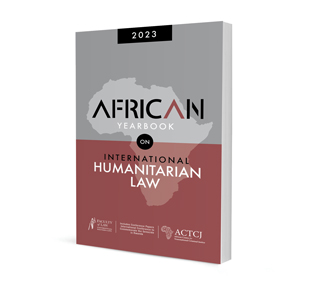
ARTICLE
Accountability for aiding and abetting the Rwandan genocide: The obligation on South Africa to investigate and prosecute Willem ‘Ters’ Ehlers
Authors: Abongile Nkamisa and Jane Borman
ISSN: 2521-2621
Affiliations: Lawyers at Open Secrets
Source: African Yearbook on International Humanitarian Law, 2023, p. 78 – 98
https://doi.org/10.47348/AYIH/2023/a4
Abstract
Genocide is often prosecuted at the level of direct perpetrators, yet those who facilitate or enable mass atrocity—such as private arms dealers—remain largely unaccountable. This article investigates the case of Willem Petrus Jacobus ‘Ters’ Ehlers, a South African arms broker who supplied weapons to the Forces Armées Rwandaises during the final months of the 1994 Rwandan genocide, in violation of United Nations Security Council Resolution 918. Using a doctrinal and casestudy methodology, this article maps the evolution of the aiding and abetting doctrine in international criminal law—from Nuremberg to the International Criminal Tribunal for the Former Yugoslavia, International Criminal Tribunal for Rwanda and the Rome Statute—and applies its elements of actus reus and mens rea to Ehlers’s conduct. The analysis demonstrates that Ehlers provided substantial assistance by negotiating arms deals in the Seychelles, arranging logistics and air charters, and facilitating payments from Rwandan government agents – all actions that materially contributed to the perpetration of genocide. Drawing on evidence from the UN International Commission of Inquiry, tribunal judgments, and domestic sources, the article argues that Ehlers’s conduct satisfies the requisite knowledge and substantial impact tests for aiding and abetting liability. Turning to South Africa’s obligations, the article examines constitutional provisions (ss 231–232), the International Criminal Court Act and Constitutional Court jurisprudence, concluding that under customary international law and domestic statutes, South Africa has a binding duty to investigate and prosecute its nationals who enable genocide. It further dispels any statute‐of‐limitations barrier for crimes jus cogens. By spotlighting a singular actor, this study underscores the critical need for states to hold private enablers of atrocity accountable. It calls on South African authorities to fulfil their erga omnes obligations, thereby strengthening international criminal justice, deterring future genocides and affirming the rule of law.